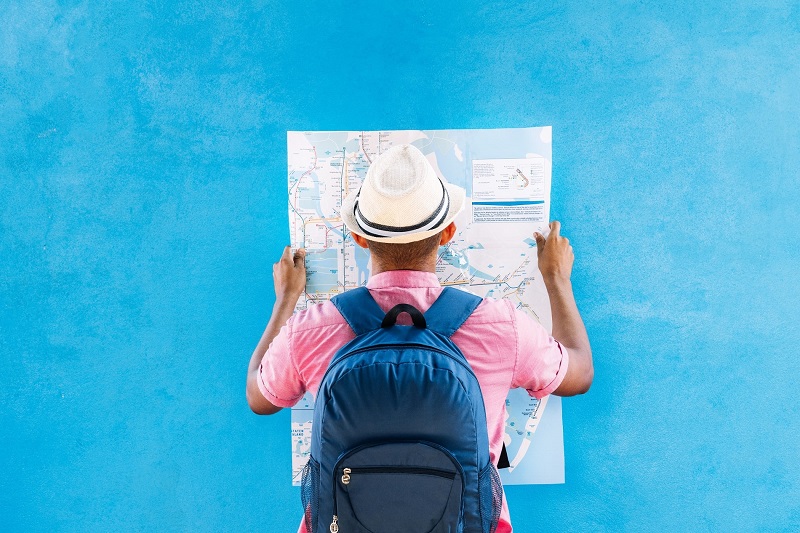Thrill-seekers and nature enthusiasts alike, gather round! The US is a playground for white water rafting adventures, offering some of the most exhilarating and scenic routes in the world. From roaring rapids to serene streams, there’s a spot for every level of adventurer.
Whether you’re looking to conquer the mighty currents of the Colorado River or immerse yourself in the lush landscapes of the Pacific Northwest, the US doesn’t disappoint. Let’s dive into the best places to go white water rafting across the country, where the water’s wild and the memories last a lifetime.
Grand Canyon, Arizona
The Grand Canyon, stretching 277 miles through Arizona, is not just a marvel of natural beauty but also a premier destination for white water rafting enthusiasts. The Colorado River, which carves its way through this massive gorge, offers a range of rapids that cater to both novices and seasoned rafters. The experience of navigating the tumultuous rapids, with the canyon’s majestic walls rising thousands of feet above, is nothing short of exhilarating.
Rafting trips in the Grand Canyon can vary, ranging from a few days to two weeks. These journeys not only provide an adrenaline rush but also offer a unique perspective of the canyon’s geological wonders and ancient ruins. The night skies, free from light pollution, dazzle rafters with an unforgettable display of stars.
Best Time to Visit
The rafting season in the Grand Canyon stretches from April through October, with peak flows typically occurring in late spring and early summer due to snowmelt from the Rocky Mountains. Temperatures during these months can soar above 100°F during the day and drop to a pleasant 50-60°F at night. It’s essential for rafters to prepare for all types of weather, as conditions can change rapidly within the canyon.
Choosing Your Adventure
For those contemplating a white water rafting trip in the Grand Canyon, there are several options to consider:
- Commercial Rafting Trips: These are guided tours operated by professional companies. They offer various packages, from motorized rafts that cover greater distances quickly to oar-powered rafts for a more intimate and challenging experience.
- Private Rafting Permits: For the more adventurous, securing a private permit allows for a self-guided journey. It’s worth noting, however, that permits are highly sought after and are distributed through a lottery system nearly a year in advance.
- Wear life jackets and helmets at all times on the river.
- Stay hydrated and protect yourself from the sun with hats, sunglasses, and sunscreen.
- Listen carefully to guides or experienced rafters, especially when navigating more difficult rapids.
| Fact | Detail |
|---|---|
| Length of the Grand Canyon |
American River, California

The American River in California offers a premiere white water rafting experience that caters to thrill-seekers of all levels. Flowing through the Sierra Nevada foothills, this river is a hotspot for both beginners and experienced rafters, dividing into three main forks each offering distinct adventures: the South, Middle, and North Forks.
South Fork: A Beginner’s Paradise
The South Fork of the American River is known for its friendly rapids, making it an ideal choice for families and beginner rafters. It’s not just about the rapids; the scenic journey down this fork is sprinkled with historic sites from the Gold Rush era, providing a gentle blend of excitement and education.
- Rapids Classification: Class II-III
- Best Season: April to September
Middle Fork: The Thrill Seeker’s Delight
For those seeking a bit more adrenaline, the Middle Fork delivers with its famous Tunnel Chute Rapid—a heart-pounding drop through a narrow chute next to a historic mining tunnel. The Middle Fork challenges rafters with a more rugged and secluded experience, traversing through the Auburn State Recreation Area’s deep canyons and serene wilderness.
- Rapids Classification: Class III-IV
- Best Season: May to September
North Fork: The Expert’s Challenge
The North Fork is for the most adventurous and skilled rafters. Featuring technical rapids and requiring precise maneuvering, this fork offers a thrilling ride especially during the spring months when the snowmelt is at its peak. Due to its seasonal nature and higher level of difficulty, the North Fork is a testament to the extreme side of white water rafting.
- Rapids Classification: Class IV-V
- Best Season: March to May
Safety and Preparation
Regardless of which fork they choose, rafters should always prioritize safety and preparation. Professional guides are available for all levels of expeditions on the American River, ensuring an enjoyable yet secure adventure. Participants are advised to bring:
- Water-resistant sunscreen
- Secure footwear
- Quick-drying clothing
- Water or hydration packs
Additionally, all rafters should have a basic understanding of swimming and water safety before embarking on their journey. Companies offering rafting tours on the American River provide all the necessary equipment, including life jackets, helmets, and paddles.
Gauley River, West Virginia

Nestled in the rugged heart of West Virginia, the Gauley River stands as a beacon for thrill-seekers and rafting enthusiasts. This river, renowned for its intense whitewater rapids, is often hailed as one of the premier rafting locations in the United States. The Gauley River’s allure isn’t just in its rapids, but also in its stunning natural beauty and the challenge it presents to those who dare to navigate its waters.
The Gauley River is divided into two main sections: the Upper Gauley and the Lower Gauley. Each offers a distinct rafting experience, catering to different skill levels and preferences.
The Upper Gauley
Often referred to as “The Beast of the East,” the Upper Gauley is famous for its five major class V rapids — Insignificant, Pillow Rock, Lost Paddle, Iron Ring, and Sweet’s Falls — that test even the most experienced rafters. Its reputation for high intensity and technical challenges makes it a must-visit for adrenaline junkies. The optimal time for tackling the Upper Gauley is during the fall, when scheduled dam releases create ideal rafting conditions.
The Lower Gauley
The Lower Gauley, while slightly less intense than its upper counterpart, still offers plenty of excitement with its class III-IV rapids. It’s an excellent choice for those looking for an adventurous ride without the extreme challenges of the Upper Gauley. The Lower section weaves through beautiful canyons and lush forests, providing a perfect blend of scenic views and heart-pounding rapids.
Safety and Preparation
Rafting on the Gauley River, especially on the Upper section, is not for the faint of heart. Proper preparation is essential to ensure a safe and enjoyable experience. Here are a few tips for those planning to take on the Gauley:
- Hire a Professional Guide: It’s crucial to go with guides who are experienced in navigating the Gauley’s challenging waters.
- Wear Appropriate Gear: Safety helmets, life vests, and suitable water-resistant clothing are a must.
- Check Weather and Water Conditions: Before setting out, make sure conditions are favorable for rafting.
Salmon River, Idaho

The Salmon River, often referred to as the “River of No Return,” offers one of the most captivating white water rafting experiences in the United States. Flowing through the rugged wilderness of Idaho, it provides a diverse set of challenges and experiences for rafting enthusiasts of all skill levels. The river’s vast expanse, scenic beauty, and thrilling rapids make it a must-visit destination for adventurers seeking the thrill of white water.
Split into several sections, with the Middle Fork and the Main Salmon River being the most popular among rafters, the Salmon River caters to a wide range of preferences. The Middle Fork is renowned for its crystal-clear waters and continuous series of rapids, offering an exhilarating adventure for those looking for an adrenaline rush. On the other hand, the Main Salmon River, with its rich historical sites and softer rapids, provides a more relaxed journey through deep canyons and past serene beaches.
Challenges and Experiences
The Salmon River’s diverse landscape includes deep canyons, vast wilderness areas, and stunning white-sand beaches, creating an unforgettable setting for white water rafting. The river’s rapids range from class II to class IV, promising an exciting ride for both novice and experienced rafters alike. Notably, the Middle Fork boasts more than 100 rapids over its 100-mile stretch, offering a continuous challenge that will keep enthusiasts on their toes.
Safety and Preparation
As with any white water rafting trip, safety is paramount on the Salmon River. Rafters should always:
- Equip themselves with the necessary personal flotation devices and safety gear.
- Be accompanied by experienced guides, especially when navigating the more challenging sections of the river.
- Check weather and water conditions before embarking on their journey to ensure a safe and enjoyable experience.
Unique Features of the Salmon River
One of the highlights of rafting on the Salmon River is the opportunity to witness the area’s abundant wildlife. Rafters often spot bighorn sheep, elk, and even bears along the riverbanks, adding an element of wilderness exploration to their adventure. Moreover, the river’s clear waters and isolated beaches offer ideal spots for fishing and camping, making it possible to combine rafting with other outdoor activities for a truly immersive wilderness experience.
Conclusion
Venturing into the heart of Idaho’s wilderness, the Salmon River offers an unparalleled white water rafting experience. Whether you’re navigating the thrilling rapids of the Middle Fork or soaking in the rich history along the Main Salmon River, there’s something for every adventurer. With its breathtaking landscapes and abundant wildlife, it’s not just about the rapids but the memories you’ll create along the way. So pack your gear, gather your friends, and set out for an unforgettable journey on the “River of No Return.”










0 Comments